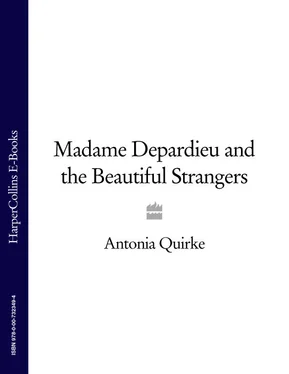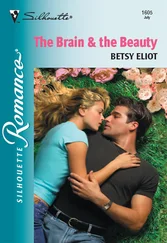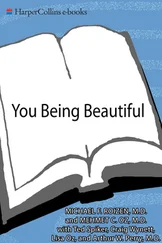My mother was confused about what I should wear on the first day of my work placement at the Camden New Journal, torn between recommending a formal skirt and blouse and actually wanting me to wear the uniform of, say, Alan Dershowitz's elaborately casual team of legal students in Reversal of Fortune. ‘It's time to get your shit together,’ she said down the phone, pleased, because she believed that working at a local paper meant that I was in effect working against the system. ‘It's your job to get the truth out there!’ she reminded me. ‘It's your job to sniff out the truth!’
Propriety won out, so I wore low blue court shoes, a white blouse with a sweetheart bow, carried a neat handbag, and was very nervous on the way to work. It is important to communicate the extent of my ignorance. Getting on the bus, I looked at the change in my hand and thought: What is money? What do banks do? Seeing the headline on someone's newspaper, I thought: What's the Cabinet, exactly? I know they're Major's advisors, but are they actually MPs?
Inside the Camden New Journal – and there was no one to stop me from walking on in, no one around very much at all – was a room with grey walls and no discernible floor, just layers of newspapers and food wrappers, cake boxes, sandwich cartons, cigarette sleeves, flattened Cup-a-Soups. There were several desks constructed out of piles of back editions on which cigarettes had been left to burn out: the desks were singed but had never ignited because the newspapers were damp. The room was a shrine to the cigarette. All around were styrofoam cups hedgehogged with butts, and the three-bar electric heater was encrusted with bits of charcoaled tobacco and frazzled stands of hair where people had stooped down to spark up. Through the frosted glass of a raised office I could make out someone sitting low in their chair with their head back, not moving. Asleep? The only other person in the room was a man of around forty with a floor-length yellow coat talking into the phone in a Liverpudlian accent under a poster of Ivor Cutler. He beckoned me over.
He was the ugliest man I had ever seen. He had fine wavy reddish-brown hair which curled beneath a long pointed chin. His pale skin was covered in sore-looking freckles and from his cracked lips dangled a dead roll-up. He looked like a fox in the late stages of heroin addiction, or someone kicked off the set of The Name of the Rose for being too credibly medieval. He looked like David Thewlis. Cradling the phone, he plopped the roll-up in a carton of milk, and smirked at my handbag.
‘Got everything you need in there? Got all your little pencils?’
He talked like David Thewlis. He rolled his chair to the side of his desk and sat back in it unashamedly – his shiny green trousers unfashionably high, tight into his crotch like jester's pants, squashing his cock up and tight to the side – and relished my shoes.
‘Oooh, how smashing – a lovely little pair of Start-rites!’ he said. ‘I'm Jim Hewson, the deputy editor – we spoke on the phone. And now here you are.’
There I was. On the lapel of his yellow coat was a little badge that said ‘Touch My Monkey’.
‘Bring your little pencils. We're going out.’
He took me first to a pub and then down to Kentish Town police station, where he heckled the officer giving a statement about a head being found in Regent's Canal. I was already very drunk and confused and became extremely paranoid when he started to goad the police about being in league with the local gangs. The police clearly hated him. There was bitterness and fear in that room.
‘Still trying to get arrested, are you, Jim?’ the officer threatened. ‘And you, Miss “Quirke”. You trying to get arrested now too?’
‘You're not going to arrest us, we're white,’ Jim sneered.
After that he walked me down to a pub in Holborn, striding for miles like a peacock while I ran to keep up, my feet blistering in my court shoes. The Princess Louise behind Gray's Inn was where Jim liked to dig his stories out of the local councillors who drank there after meetings. Again there was a little pulse of fear at his presence, disguised under uneasy bonhomie. When I got back from peeling off my bloodied tights in the loo, he was smilingly scoffing at a councillor: ‘You're fucking her, aren't you? That's why this is happening. He's fucking her. You dirty man. What happened to your tights?’
On the way back to Camden we stopped at yet another pub where he drank his dozenth double of the afternoon and regarded the jukebox selections with the stalest disgust: ‘Why the fuck do I ever drink in here when all they've got to listen to is Freddie Mercury and his harem of stockbrokers?’
I could not reply because I fancied him too much even to open my mouth.
Jim was a communist. Everyone at the Journal was a communist. But Jim would never agree with the other communists, which seemed to make him immensely popular among them. People would come round and get sidetracked into spending long, hero-worshipping hours by his desk while he was unbelievably rude about them to their faces. Among these people were a group called the Chartists whom Eric Gordon, the editor, expected every Friday for a serious discussion involving the whole office. Eric was a communist too and had travelled to China as a journalist in the 1960s to help out with the Cultural Revolution. When he had objected to what he was seeing, the authorities had put him and his wife and child under house arrest. For five years. In a room that measured ten feet by twelve. And he was still a communist.
On Fridays when the big hitters rolled up, everyone was expected to contribute. Jim, whose hair seen closer up now seemed the colour of curry powder, would dazzle the room while Eric listened through the frosted glass to his protégé, too knowledgeable and wise to condescend to mere pyrotechnics. These were terribly detailed, recondite conversations as abstruse as the discussions on scripture during which I had been equally silent throughout my childhood. There was still the vexed issue of the Twentieth Party Congress. There was serious present business to do with Central America. There was the question of getting Stalin's twenty million victims down to something more manageable, like twelve million. There was always 1917 and Trotsky. While Jim waltzed through the upper echelons of theory and practice, I kept my head down and watched his elegant freckled fingers draw their merciless distinctions. Only once did I ever score a success, when the subject had moved to the First World War.
‘I don't know, but John Reed always seemed right to me,’ I said. ‘The First World War was about prophets.’
Jim, who was not to know that I was only aware of this because I was a fan of Reds, flashed me a vulpine grin which sent me floating up Parkway that evening eight feet off the ground. I had won a smile from a man who knew how to repair the flaws in dialectical materialism.
Not Reds for Warren Beatty – what kind of book do you think this is? For Jack Nicholson! Warren Beatty … The man with the loveliest, slowest pulse in cinema versus an actor who is forever trying to hoodwink you that his heartbeat is faster than it actually is. The guy who always acts less handsome than he is versus the preener: you're always mentally cleaning up Nicholson's face and mentally trying to ruffle Beatty's. The vulnerable versus the unhurtable. The living versus the dead. Nicholson is the greatest actor since, let's say, the time between the Beatles' ninth LP and the birth of Zinedine Zidane, whose work is founded on a sense of humour. They're not terribly funny, those geniuses whose names end in ‘o’, are they? Here are ten more words to kill any smile – Sean Penn, Kevin Spacey, Dustin Hoffman, Edward Norton, Gary Oldman. Serious business, great acting. Nicholson plays a small role in Reds as the playwright Eugene O'Neill being manipulated by Beatty's lover Diane Keaton into thinking he's seducing her. It's all rather sad and Chekhovian. She tells him that Beatty has gone away, leaving her to get on with her own things here in this beach house on Long Island.
Читать дальше












